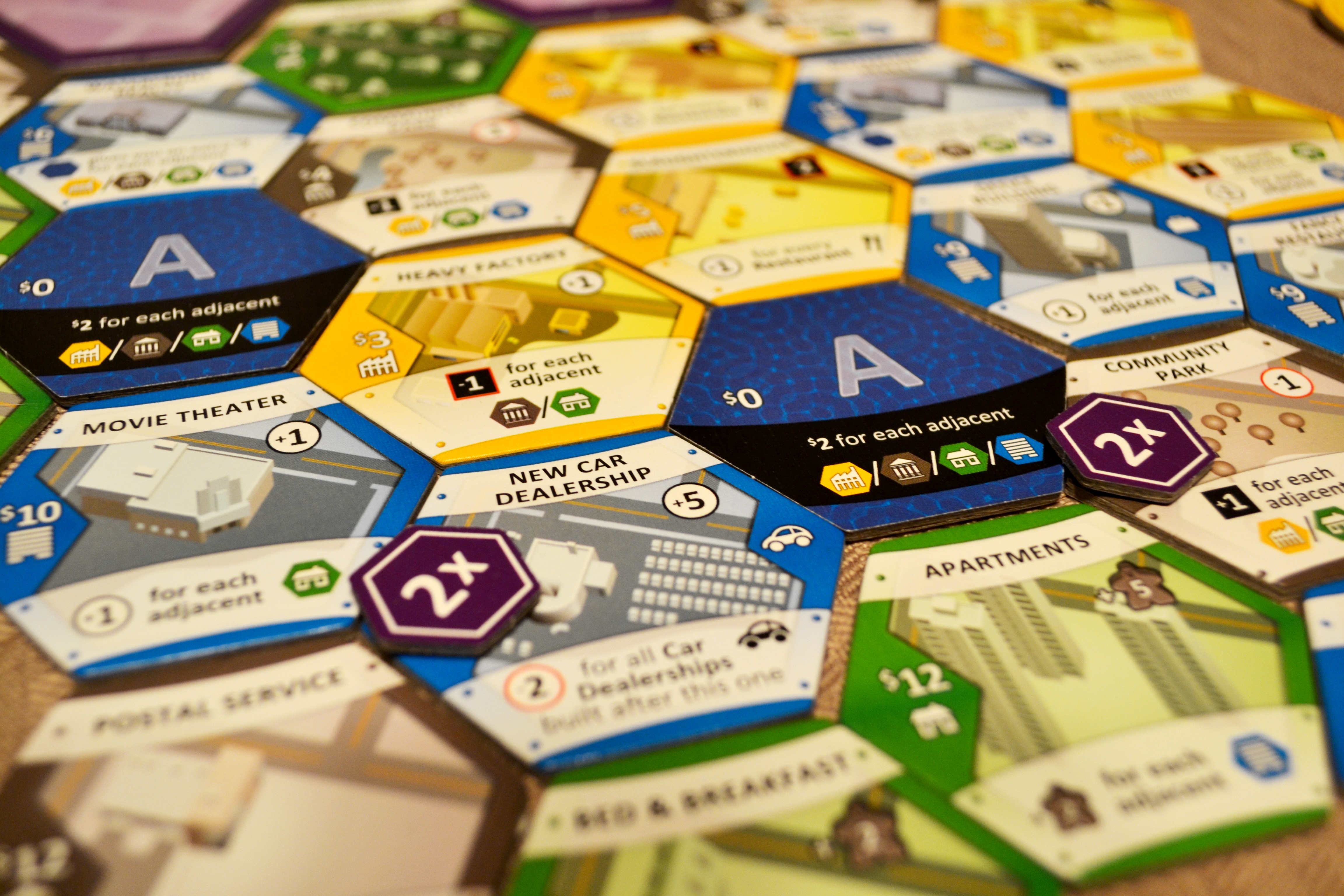
In relation to CoB, I think the game is much more fun but not as deep. But what it sacrifices in cutthroat tactical tile laying, it makes up for in some tactical purchasing and thematic satisfaction. Like Carcassonne, you only play one tile every turn. This makes Suburbia easy to teach, and easy to get people into. The game not only has simple, effective reasons behind how these tiles can affect the game, the effects are also thematic and therefore easier to understand and remember. However, the residential tile for low income housing also lowers reputation but gives you a huge amount of population. For instance, industrial tiles tend to lower your reputation when they're next to residential tiles - people won't move to your city because of the smell, sound, or look of these industrial buildings.

However, it uses this simple system to make a host of very thematic tiles that all affect your borough or your variables.
#TROUBLE IN SUBURBIA GAME PLUS#
Plus a few symbols which are only meaningful in relation to themselves and each other. The game only uses a few variables - population, reputation, money, and income, essentially. Suburbia is one of the tightest, mot thematic simple tile laying games I've ever played. I can speak about Castles of Burgundy vs Suburbia. You can probably sell for a profit if you end up disliking it. The game is great with just the base game which is like $35 or something, so I'm doubtful that the $95 price tag will be worth it for me (though I really like the tile dispensing thing!)Įdit: the collectors edition looks awesome and I'm definitely backing it! I definitely recommend backing it if you like the game or even think you will. It has great pacing and it's very satisfying to see your city grow and improve through your smart development planning.Īs for the deluxe version, I've only seen three screenshots so far so I'll wait till tomorrow to see what is offered. The game is fun, and I enjoy it at all player counts, with my favorite probably being 3p. An Airport becomes better the more airports there are in existence. A parking lot wants to be built next to businesses. The Landfill improves the income of your city because you don't have to ship the garbage super far away, but your reputation will drop if the landfill is next to any housing or businesses. Mechanics of tiles make perfect sense based on what it is. Unlike what others are saying, I think the theme is strong. They can also move a new piece out even if they have another piece currently in play, and can also do the same if another player's piece is occupying their "start" space, but cannot do so when one of their own pieces is occupying their "start" space.It's a solid game. Getting a 6 at any point in the game also allows the player to take another turn, even if the player cannot move any of their pieces (as they cannot land on any of their own pieces). Players may move pieces out of their start only when the die lands on 6. The die is imprinted with Arabic numerals rather than the traditional circular pips (though the circular pips are used in the Travel version, which contains a cover to keep the pegs from being lost). It allows for quick die rolls, and players' turns can be performed in rapid succession.

The Pop-O-Matic container produces a popping sound when it is used, and prevents the die from being lost (and players from cheating by improper rolling). Players roll the die by pressing down quickly on the bubble, which flexes the sheet and causes the die to tumble upon its rebound. This device is a clear plastic hemisphere containing the die, placed over a flexible sheet. The most notable feature of Trouble is the "Pop-O-Matic" die container. Unlike more complex race games such as Parcheesi, counters cannot be maneuvered to block opponents' moves. Pieces are protected from capture after arriving in the final four slots. Players can send opponents' pieces back to the start by landing on them. Ī similar game called Headache was also produced by the Milton Bradley Company besides a different track layout, its pawns are conical, in contrast to the cylindrical pieces used in Trouble. The gameplay, board, and concept is derivative of the Indian board game Ludo. The classic version is now marketed by Winning Moves Games USA. The game was launched in America in 1965. Trouble was developed by the Kohner Brothers and initially manufactured by Irwin Toy Ltd., later by Milton Bradley (now part of Hasbro). Pieces are moved according to the roll of a die using a contained device called a "Pop-O-Matic". Trouble (known as Frustration in the UK and Kimble in Finland) is a board game in which players compete to be the first to send four pieces all the way around a board.


 0 kommentar(er)
0 kommentar(er)
